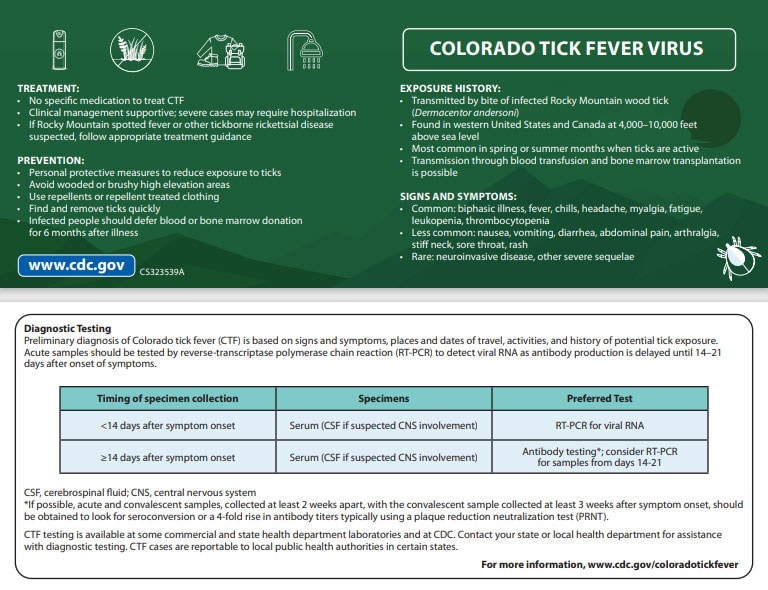Diagnostic Testing
Preliminary diagnosis of Colorado tick fever (CTF) is based on the patient’s signs and symptoms, places and dates of travel, activities, and history of potential tick exposure.
Laboratory diagnosis of CTF is generally accomplished by testing of serum to detect viral RNA or virus-specific immunoglobulin (Ig) M and neutralizing antibodies. Antibody production can be delayed with CTF, so tests that measure antibodies may not be positive for 14–21 days after the onset of symptoms. RT-PCR (reverse-transcriptase polymerase chain reaction) is a more sensitive test early in the course of disease.
CTF testing is available at some commercial and state health department laboratories and at CDC. Contact your state or local health department for assistance with diagnostic testing. They can help you determine if samples should be sent to the CDC Arbovirus Diagnostic Laboratory for further testing.
CTF cases are reportable to local public health authorities in certain states. As of September 2020, CTF was specifically reportable in nine states: Arizona, Colorado, Idaho, Montana, New Mexico, Oregon, South Dakota, Utah, and Wyoming.
